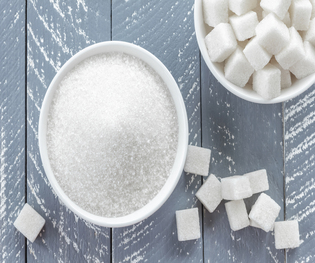In the last decade, concern about carbohydrate intake, and sugars in particular, has skyrocketed. We’re all aware of the connection with type 2 diabetes, but sugar can have ties to other serious conditions such as hypertension and fatty liver disease, too.
Sugar Affects Blood Pressure
It’s been suspected for some time that dietary sugar and blood pressure are linked. It’s even been shown that higher levels of sugars are associated with elevated blood pressure readings in children[1].
A 2017 study found that sugar can increase salt sensitivity in some people and when sugar and salt are taken together in the same meal, the effect on blood pressure is even greater than it would be if these substances were consumed separately – a kind of “double whammy” effect.[2]
This makes the sugar connection for blood pressure, and the related effects for cardiovascular health, all the more important.
Sugar Affects Your Liver
Your liver keeps you healthy by filtering your blood, helping to manage your blood sugar level, and processing nutrients and other substances such as medications for excretion. While it is normal to have a certain amount of fat in your liver, too much fat prevents the liver from doing its job. When liver function is impaired by fat, non-alcoholic fatty liver disease (NAFLD) may be diagnosed.
High intakes of ordinary table sugar (sucrose) promote the development of a fatty liver, but fruit sugar (fructose) does so even more[3].
Tips for Reducing Your Sugar Intake
- Watch for hidden sugar by reading ingredient labels. Any ingredient ending in “ose” is a form of sugar.
- Cut back on high-sugar beverages, such as sodas and fruit juices. A serving of fruit juice is 4 ounces (125 ml) and counts as a serving of fruit.
- Limit fruit servings to 2 per day for non-diabetics and 1 per day for diabetics. A serving of fruit is one medium-sized fruit, approximately the size of your closed fist, or a ½ cup of chopped fruit or berries.
- If you put sugar in tea or coffee, consider using stevia instead. Stevia is a natural substance that has a sweet taste similar to sugar. Because it has a different chemical structure, it doesn’t have the negative effects of sugar.
____________________________
[1] Kell, Kenneth P., et al. “Added sugars in the diet are positively associated with diastolic blood pressure and triglycerides in children.” The American journal of clinical nutrition 100.1 (2014): 46-52.
[2] Preuss, Harry G., et al. “Blood Pressure Regulation: Reviewing Evidence for Interplay Between Common Dietary Sugars and Table Salt.” Journal of the American College of Nutrition (2017): 1-8.
[3] Moore, J. Bernadette, Pippa J. Gunn, and Barbara A. Fielding. “The role of dietary sugars and de novo lipogenesis in non-alcoholic fatty liver disease.” Nutrients 6.12 (2014): 5679-5703.









